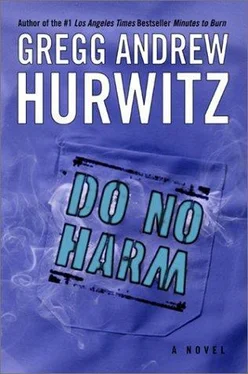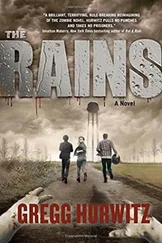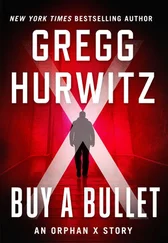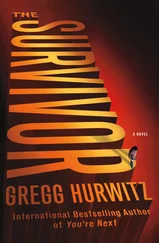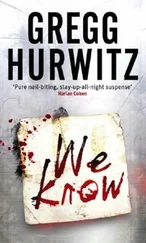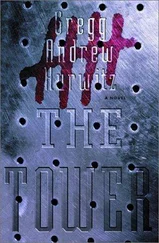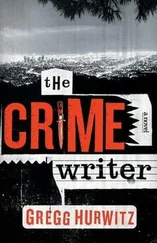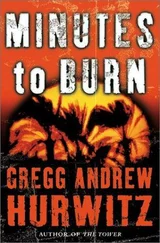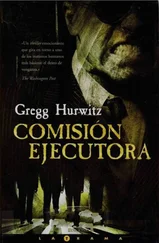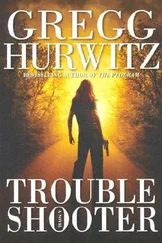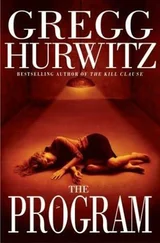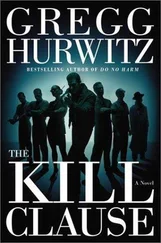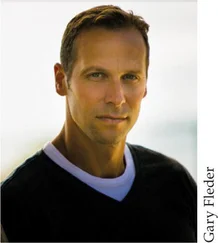Gregg Hurwitz - Do No Harm
Здесь есть возможность читать онлайн «Gregg Hurwitz - Do No Harm» весь текст электронной книги совершенно бесплатно (целиком полную версию без сокращений). В некоторых случаях можно слушать аудио, скачать через торрент в формате fb2 и присутствует краткое содержание. Жанр: Триллер, на английском языке. Описание произведения, (предисловие) а так же отзывы посетителей доступны на портале библиотеки ЛибКат.
- Название:Do No Harm
- Автор:
- Жанр:
- Год:неизвестен
- ISBN:нет данных
- Рейтинг книги:4 / 5. Голосов: 2
-
Избранное:Добавить в избранное
- Отзывы:
-
Ваша оценка:
- 80
- 1
- 2
- 3
- 4
- 5
Do No Harm: краткое содержание, описание и аннотация
Предлагаем к чтению аннотацию, описание, краткое содержание или предисловие (зависит от того, что написал сам автор книги «Do No Harm»). Если вы не нашли необходимую информацию о книге — напишите в комментариях, мы постараемся отыскать её.
Do No Harm — читать онлайн бесплатно полную книгу (весь текст) целиком
Ниже представлен текст книги, разбитый по страницам. Система сохранения места последней прочитанной страницы, позволяет с удобством читать онлайн бесплатно книгу «Do No Harm», без необходимости каждый раз заново искать на чём Вы остановились. Поставьте закладку, и сможете в любой момент перейти на страницу, на которой закончили чтение.
Интервал:
Закладка:
David's eyes were adjusting slowly to the dark, and he saw Ed nod approvingly. "You're a doctor. Use that. Give me more."
David pressed his hands together and rested his chin atop his fingertips. "Let's see. He wanted the lights dimmed, so maybe he has recurring migraines. His balance was off, and he slurred slightly. He might be obsessive-compulsive or delusional-he repeated what seemed to be ritualistic phrases and displayed concreteness of thought. He claimed he'd been locked up in darkness with snakes, and he mentioned lights and noises. His fixation on women, on punishing women, is extreme and conscious. And he seems to have deficits accurately interpreting the intentions of others."
"What does that mean?"
"He misinterprets benign questions as hostile, and this elicits aggression from him. For instance, I was checking his mental status, and asked him if he knew what month it was. He became hostile and asked if I thought he was stupid."
"If he doesn't understand something, it's an insult," Ed said.
"Precisely. Even when the presented cues-tone of voice, facial expression, conversational context-would lead an ordinary person to realize that the questioning is benign, even benevolent, he finds it antagonistic. Which means he finds himself constantly moving through a hostile landscape, where he perceives that people are antagonizing him. Imagine how that would be, if you thought people were always insulting you, attacking you. It would make you pretty aggressive."
A hint of irony crept into Ed's voice. "It sure would."
"He's also extraordinarily insecure and defensive, and he adamantly denies taking any drugs or pills, which leads me to believe he probably does. He seems simultaneously afraid and desirous of being alone, and betrays an intense fixation."
"On who?"
"On me."
"Better," Ed said. "Now we have a profile shaping up."
"So you'll help me?"
"No. I need more from you first. A fingerprint, decent photo, or at least a name."
"What can you do with that?"
"I have certain advantages over the police because I don't have to move through legal channels."
"I'm not asking you to do anything illegal or unethical," David said.
Ed's laugh echoed around the living room. "Everything's ethical. The question is: What kind of ethics?"
Ed reached over and plucked one of the items off the table at his side. He tossed it at David. David lost track of it in the darkness, and the object struck him in the chest and fell to the couch. "Ed? Ed?"
No sound in the darkness. David felt along the cushion, finally finding the thing Ed had thrown at him. A lightbulb.
David crossed the room, bumping into a lamp and nearly knocking it over, but he caught it by the thin metal post. He managed to remove the shade in the darkness and screw the lightbulb in place.
He turned the switch and was not surprised to find Ed gone.
Lying on the reading table were three other lightbulbs. Tucked under one of them was an unprinted business card, blank save for a phone number written across the bottom in black ink.
Sadly, it took one Jewish doctor more than ten minutes to screw in three lightbulbs. Afterward, David checked the doors and windows but was unable to find any signs of forced entry. No scratches on any of the locks. Whoever Ed Pinkerton was, he knew what he was doing.
Rather than sleep, David prepared a list of all Clyde's symptoms he had observed and then translated the more difficult terms into nonmedical phrases in case he had to show it to others. The list read: nystagmus-pupils jerking headaches difficulty concentrating clouding of consciousness dysarthria-slurred speech akathisia-restlessness ataxia-drunken walking
Beneath that, David wrote some potential diagnoses, including CNS lupus, schizophrenia, schizoaffective disorder, brain tumor, Huntington's, Wilson's, metachromatic leukodystrophy, subdural hematoma, viral encephalitis or an obscure central nervous system infection, aqueductal stenosis, temporal lobe epilepsy, thyrotoxicosis, multiple sclerosis, drug toxicity, insecticide poisoning.
Given the vagueness of the information David currently had, it was impossible to narrow the list further.
He thought about Clyde's compulsive repetition, the counting backward from three. What did that represent?
David set down the pad of paper and checked his watch. It was close to midnight. He undressed in his bedroom. When he got into bed, he was struck by its vastness, and the empty space at his side.
He thought of his wife on the MICU bed, the monotonous hum of the monitor at her side. He thought of Clyde, an ugly, broken man shuffling through life, barely capable of looking other people in the face, and he wondered if he had a responsibility to emerge from the hibernation that had been his life for the past few years. His hard shell of Spartan regularity protected him, mostly, from the empty stretch of bed at his side. But it also shielded him from other, vital, things.
Though he'd been awake for nearly forty-five hours, his whole body was humming with energy. He lay for a few minutes with his thoughts, then threw back the sheets and got dressed again. The ride back to the hospital was dreamlike, the streets shimmering black and silver.
There was little activity in the ER lobby, and the examination rooms were mostly empty. Don had fallen asleep on a high stool in the CWA, slumped on the back counter. Nurses and interns lethargically filled out charts and shuttled them from tray to tray.
"Was there anything put in the property locker?" David asked, announcing his presence. "From Clyde?"
Don lazily raised his head, his eyelids heavy. "What?"
David continued, addressing the others. "Maybe something fell out of his pockets, or someone took something off him and stored it in the property lockers."
"Looking for clues, Dr. Spier?" one of the nurses asked. The others looked at him with barely concealed amusement.
"Was there?" he asked again.
A man David recognized as the lab tech he'd pulled in to help irrigate Clyde answered. "The property lockers are all empty. We didn't take anything off him, remember? And the cops confiscated everything that was left in the room."
"Why are you worrying about this at two in the morning?" Don asked.
David placed a hand on the counter, feeling the weight of the stares aimed in his direction. Meeting the fixed looks with resolve, he thought about how Clyde shied away from eye contact, how he found it threatening. What had Clyde said? I don't stay around people anymore. Not people that can look at me back.
The realization hit David with such force that he drew back his head. Where would Clyde have gone to hide out after his escape from the ER? Somewhere that people couldn't look back at him. Somewhere suited to a person simultaneously afraid and desirous of being alone. A place where he'd be among dead people. Dalton had mentioned that they'd found traces of blood in the Three Corridor-back by the freight elevators. The freight elevators were used to cart bodies up to the anatomy crypt on the seventh floor.
David took a step back, knocking over a tray of charts, and left the room at a brisk walk, leaving the others to exchange puzzled glances behind his back.
Chapter 37
David entered through the anatomy lab, the wide rectangle of a room dotted with cadavers lying on elevated metal tables. The hatchlike doors of the dissecting tables had been left open. The bodies were exposed, their chests cracked, faces peeled, limbs sinewy and yellow. The stench of formalin hung in the air, a smell that reminded him of his own med school cadaver that he and his anatomy partner had jokingly named Hercules because of its scrawny musculature.
He paused above a body and peeled back the thin layer of bleached cheesecloth. The student had done a poor job on the cheek, making a mess of the masseteric fascia. The yellowed flesh of the jaw hung down like shredded chicken. David covered the face again and proceeded through the lab into the prep room.
Читать дальшеИнтервал:
Закладка:
Похожие книги на «Do No Harm»
Представляем Вашему вниманию похожие книги на «Do No Harm» списком для выбора. Мы отобрали схожую по названию и смыслу литературу в надежде предоставить читателям больше вариантов отыскать новые, интересные, ещё непрочитанные произведения.
Обсуждение, отзывы о книге «Do No Harm» и просто собственные мнения читателей. Оставьте ваши комментарии, напишите, что Вы думаете о произведении, его смысле или главных героях. Укажите что конкретно понравилось, а что нет, и почему Вы так считаете.
